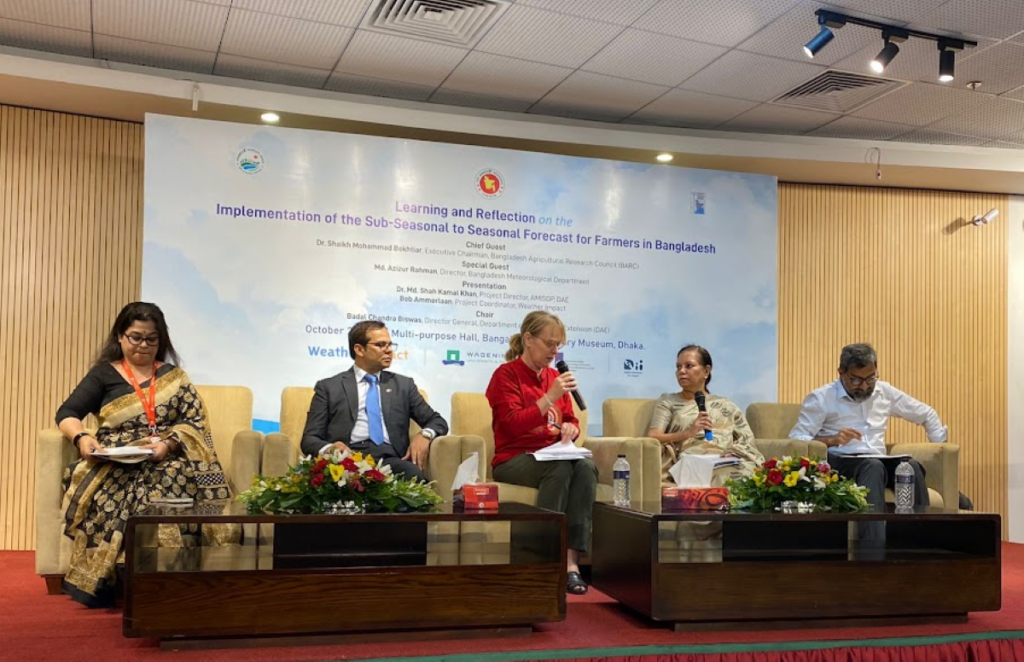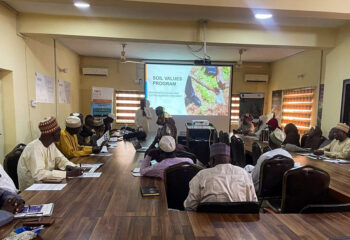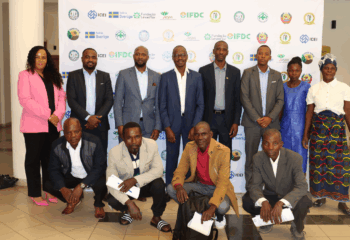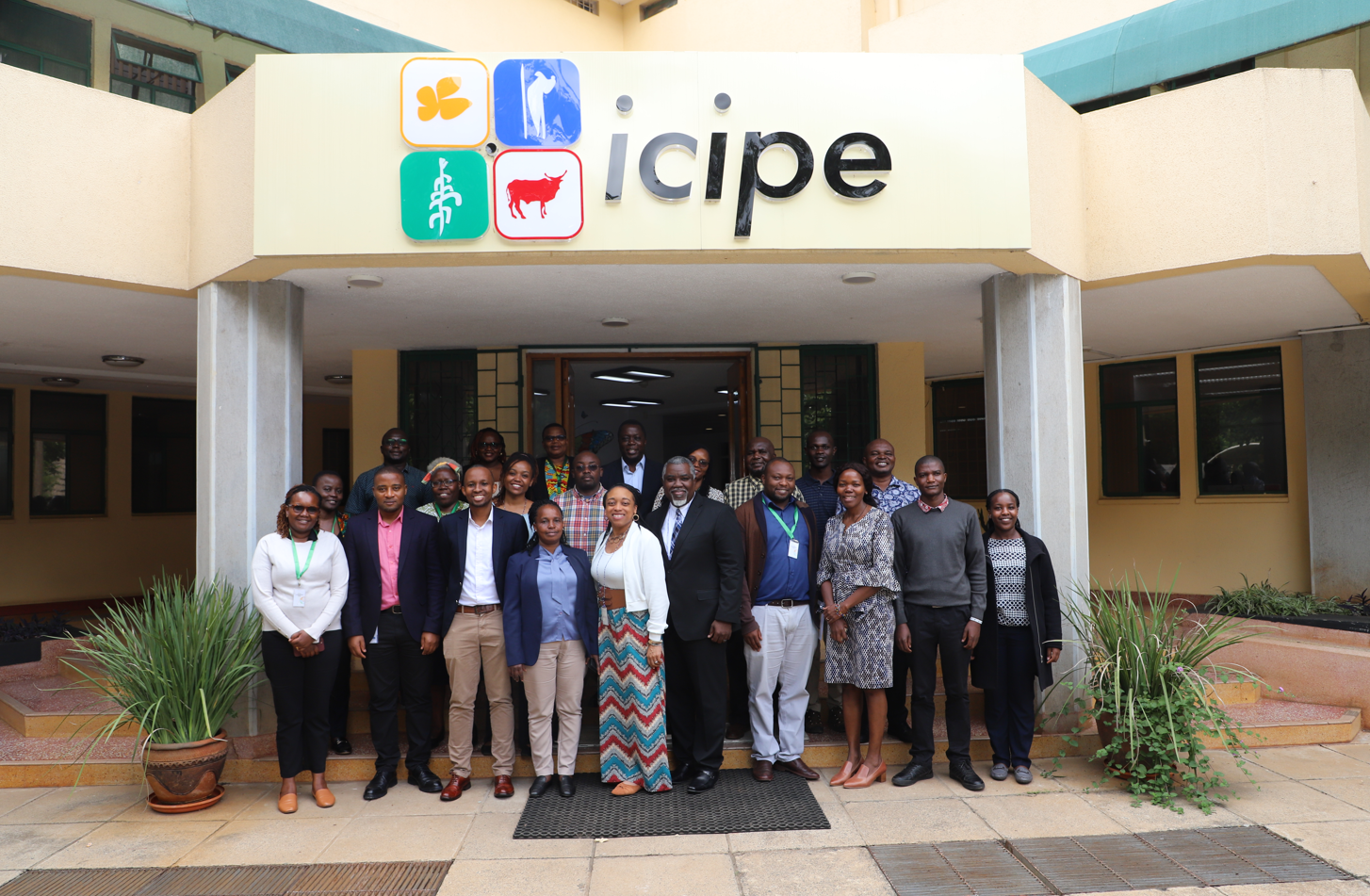
To highlight the critical role of farmers in utilizing seasonal forecasts to mitigate climate risks in Bangladesh, a workshop consisting of industry experts and technical leaders in agriculture, climate, and meteorology convened in Dhaka, Bangladesh, on October 22.
Bangladesh, facing persistent climate vulnerability and frequent natural disasters, has launched the “Sub-Seasonal to Seasonal Forecasting for Agriculture in Bangladesh” initiative, operational for the past six months at the Bangladesh Meteorological Department.
This initiative, a collaboration between the Department of Agricultural Extension and the Bangladesh Meteorological Department under the Agro-Meteorological Information Systems Development Project, provides timely and accurate weather information directly to farmers. Weather Impact and Wageningen University & Research, in partnership with the Digital Innovation for Impact (Dii), led the development of the system, with support from the Royal Netherlands Meteorological Institute (KNMI).
The workshop’s keynote presentation addressed various weather and climate challenges facing Bangladesh in the future. To tackle these challenges, one important strategy is to provide farmers, extension agents, researchers, and policymakers access to weather and climate advisories. The data will empower them to make informed decisions at the operational, strategic, and policy levels. However, this requires collaboration among government agencies, national and international organizations, and the private sector.
Following the presentation, a panel discussion titled “From Prediction to Production: Navigating the Challenges and Opportunities of Modern Forecasting for a Climate-Resilient Bangladesh” took place. During the discussion, Ishrat Jahan, Chief of Party of the Feed the Future Bangladesh Climate Smart Agriculture Project, implemented by IFDC, noted the pivotal role of climate information services in enhancing climate resilience.
“The farmers of the Feed the Future Bangladesh Climate Smart Agriculture Project will benefit from adjusting their farm planning if they can get accurate information on weather forecasting before the season. It will reduce their crop loss due to natural calamity, especially in the coastal region.”
Ishrat jahan, chief of party of the Feed the Future Bangladesh Climate Smart Agriculture Project
The panelists, each an expert in their respective field, discussed three main topics: the role of climate information services in enhancing climate resilience in Bangladesh, strategies for making forecast information accessible to farmers, and measures to ensure the long-term impact and improvement of climate information services through collaboration.
Building on Bangladesh’s past successes in collaborative disaster risk management, the panel aimed to enhance cooperation among agencies and create a durable and effective climate information service that serves the interests of farmers, extension agents, and policymakers.
The Feed the Future Bangladesh Climate-Smart Agriculture Activity is one of the many assistance activities supported by the American people through the United States Agency for International Development (USAID).





